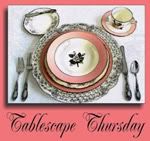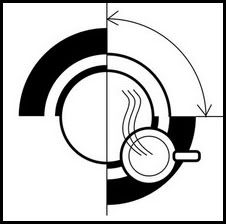The transplant practice that was recommended works with the Sarah Cannon Institute at the Centennial Medical Center in Nashville. For those who do not know, Sarah Cannon is the real name of Minnie Pearl - yes the Minnie Pearl with the famous hat - who apparently did a great deal of work and provided a great deal of funding to advance cancer centres and promote research. Given my affinity for hats, doesn't this seem "meant to be"!?! LOL.
The name of the specific transplant program is the "Sarah Cannon Blood and Marrow Transplant Program," and it is located very close to Vanderbilt University in Nashville (not a part of the Vanderbilt system in any way so far as I can tell, but with access to all their info, etc..) There are three transplant doctors involved with the program; their practice is collectively called "Tennessee Oncology."
You may wonder why this particular group was recommended. My doctors here believe these guys are as good as it gets at doing this work. My hematologist points out that one of them is from Harvard Medical School, another is from M. D. Anderson, and the third is from Sloan Kettering. He thinks they are all excellent. I ended up with Daniel Couriel, MD, who is the one who worked at M. D. Anderson for some time and was head of one of their research divisions on transplants and something called Host Versus Graft (HVG) disease. HVG, it turns out, is one of the key risk areas in achieving successful transplant outcomes. Their knowledge and experience base seems to be absolutely first rate.
Neither of my hematology experts here are particularly fans of UAB right now; we also asked about Vanderbilt, which one of them had mentioned. Apparently one of the problems with these choices is accessibility and follow-up. My doc stresses that the patient and the doctor really need a "close relationship" and a good understanding of each other in the transplant scenario.
For a while after a transplant, especially the first year, a great deal of follow-up and contact is required with the transplant team. At UAB and at Vanderbilt, there is (according to the local docs) a very high turnover rate as people show up and work for a year or two and then move on. The main exceptions to this seem to be a few older doctors that are deep into their research work and are very hard to reach (maybe not so very interested in clinical work?) when either the patient or my doc here needs to get in touch with them in a hurry. This tends to be the case apparently at a lot of the more "high profile" locations doing transplants, especially the ones doing a lot of the academic research.
In my case, Mike and I overheard my doctor make a phone call adjacent to the room we where were waiting for him, asking for Dr. Couriel to call him back right away about a new patient (ME). Within about 5 or 10 minutes, he called back from his office in Nashville. Apparently responsiveness is much better in this channel. So, the combination of excellent expertise and accessibility (and being only a couple of hours away as well) are the major reasons they recommend this group. There is already a good relationship and some history in place between my doctors here and the ones there, and the prevailing opinion is that a good working relationship is very important with transplants where a lot of contact (sometimes required immediately) is necessary.
One other obvious point I should mention is that the type of transplant I need is NOT done here where we live. The local group here does autologous transplants, where a patient's own stem cells are harvested, sorted, and filtered, and then given back to them. For MDS, I require an allogenic transplant--stem cells or bone marrow from a different donor and not from me. Won't go into the technical reasons, as I'm not sure I understand them all anyway.
So now, stay tuned for Part 3.
















 Alabama Time
Alabama Time Paris Time
Paris Time Venice Time
Venice Time










No comments:
Post a Comment